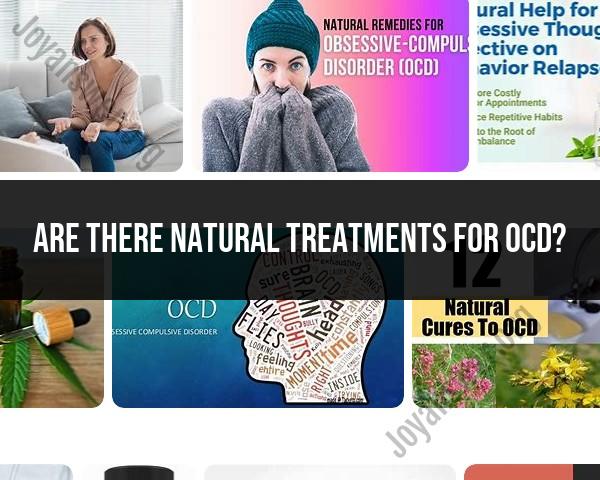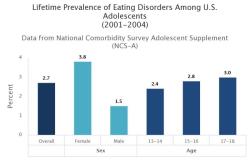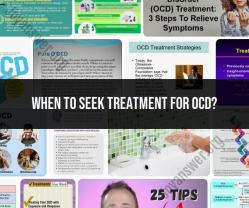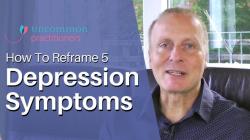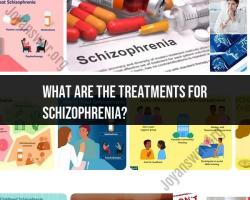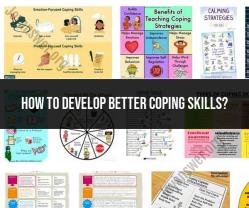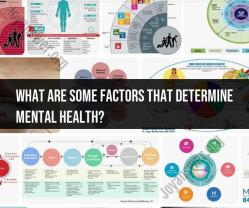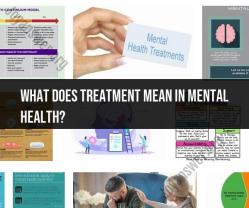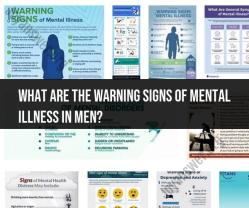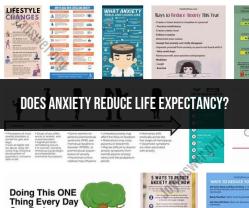Are there natural treatments for OCD?
Obsessive-Compulsive Disorder (OCD) is a chronic mental health condition that often requires a comprehensive treatment plan. While conventional treatments like Cognitive Behavioral Therapy (CBT) and medication are typically recommended, some individuals may seek natural or complementary approaches to manage their symptoms. It's essential to consult with a healthcare provider before starting any new treatment regimen. Here are some natural approaches that may help in managing OCD:
1. Lifestyle and Behavioral Changes
Regular Exercise
- Benefits: Exercise can help reduce anxiety and improve mood by increasing endorphins and other brain chemicals.
- Recommendations: Aim for at least 30 minutes of moderate exercise most days of the week.
Healthy Diet
- Benefits: Proper nutrition can support overall brain health and help regulate mood.
- Recommendations: Include a balanced diet rich in omega-3 fatty acids (found in fish, flaxseeds, and walnuts), vitamins, and minerals.
Sleep Hygiene
- Benefits: Adequate sleep is crucial for mental health and can help reduce OCD symptoms.
- Recommendations: Establish a regular sleep schedule, create a restful environment, and avoid stimulants like caffeine before bedtime.
2. Mindfulness and Relaxation Techniques
Mindfulness Meditation
- Benefits: Mindfulness can help individuals become more aware of their thoughts and reduce the impact of obsessions.
- Practices: Techniques include mindfulness meditation, breathing exercises, and body scans.
Yoga and Tai Chi
- Benefits: These practices combine physical movement with mindfulness, helping to reduce stress and anxiety.
- Recommendations: Incorporate yoga or Tai Chi sessions a few times a week.
Deep Breathing and Progressive Muscle Relaxation
- Benefits: These techniques can help manage stress and anxiety, which are often associated with OCD.
- Practices: Engage in deep breathing exercises or progressive muscle relaxation daily.
3. Herbal and Nutritional Supplements
Inositol
- Benefits: Some studies suggest that inositol, a type of sugar related to the B vitamins, can help reduce OCD symptoms.
- Dosage: Consult with a healthcare provider for appropriate dosing.
St. John’s Wort
- Benefits: Often used for depression, St. John’s Wort may also help with OCD symptoms.
- Caution: Can interact with other medications; consult a healthcare provider before use.
N-acetylcysteine (NAC)
- Benefits: An antioxidant that has shown promise in reducing OCD symptoms in some studies.
- Dosage: Typically 1,200 to 3,000 mg per day, but consult with a healthcare provider.
Omega-3 Fatty Acids
- Benefits: Omega-3s have anti-inflammatory properties that can support brain health and may help reduce anxiety.
- Sources: Fish oil supplements or dietary sources like salmon, chia seeds, and walnuts.
4. Cognitive and Behavioral Strategies
Cognitive Behavioral Strategies
- Self-Help Books: There are numerous self-help books based on CBT principles that can guide individuals through exercises to manage OCD.
- Online Programs: Various online CBT programs are available that can be effective in reducing OCD symptoms.
Exposure and Response Prevention (ERP)
- Benefits: A type of CBT that is highly effective for OCD.
- Self-Guided ERP: Some individuals may benefit from self-guided ERP techniques with the help of workbooks or online resources, though professional guidance is recommended for best results.
5. Support and Social Connections
Support Groups
- Benefits: Joining a support group can provide social support and practical advice from others experiencing similar challenges.
- Resources: Look for local or online OCD support groups.
Family Support and Education
- Benefits: Educating family members about OCD can help them provide better support and reduce stress within the household.
- Resources: Family therapy or psychoeducation programs.
Conclusion
While natural approaches can complement traditional OCD treatments, they should not replace professional medical advice or therapy. It is crucial to work with a healthcare provider to create a comprehensive treatment plan tailored to individual needs. Combining conventional treatments with these natural approaches may offer the best chance of managing OCD symptoms effectively.
Are there natural or alternative remedies available for managing Obsessive-Compulsive Disorder (OCD)?
It's important to understand that there's currently no cure for OCD, and evidence-based treatments are the most effective way to manage symptoms. These treatments typically involve a combination of:
- Cognitive-behavioral therapy (CBT): This is the first-line treatment for OCD and helps individuals identify and change negative thought patterns and compulsive behaviors.
- Medication: Medications like selective serotonin reuptake inhibitors (SSRIs) can help regulate brain chemicals involved in OCD symptoms.
However, some people with OCD may find complementary therapies helpful alongside these mainstays. Here are some natural or alternative approaches that might offer some benefit, but keep in mind the following:
- Limited research: There's limited scientific evidence to support the effectiveness of these approaches for OCD specifically.
- Talk to your doctor: It's crucial to discuss any complementary therapies with your doctor before starting them, especially if you're already taking medication for OCD. Some supplements might interact with medications or worsen symptoms.
Here are some examples of complementary approaches for OCD:
- Lifestyle changes: Getting enough sleep, eating a healthy diet, and exercising regularly can contribute to overall well-being and potentially help manage OCD symptoms.
- Mindfulness and relaxation techniques: Techniques like meditation, yoga, and deep breathing exercises can help manage stress and anxiety, which can worsen OCD symptoms.
- Supplements: Some studies have explored the use of supplements like N-acetylcysteine (NAC) or inositol, but the results are inconclusive. Again, discuss these with your doctor before trying them.
Important points to remember:
- Don't rely solely on alternative therapies: These approaches should be considered alongside, not instead of, evidence-based treatments.
- Individual effectiveness: What works for one person with OCD might not work for another.
- Seek professional help: If you're struggling with OCD, consult a mental health professional to develop a personalized treatment plan.
Here are some resources that you might find helpful:
- International OCD Foundation: [International OCD Foundation ON iocdf.org]
- National Institute of Mental Health - OCD: [Obsessive-Compulsive Disorder (OCD) - National Institute of Mental Health (NIMH) (.gov) nimh.nih.gov]
